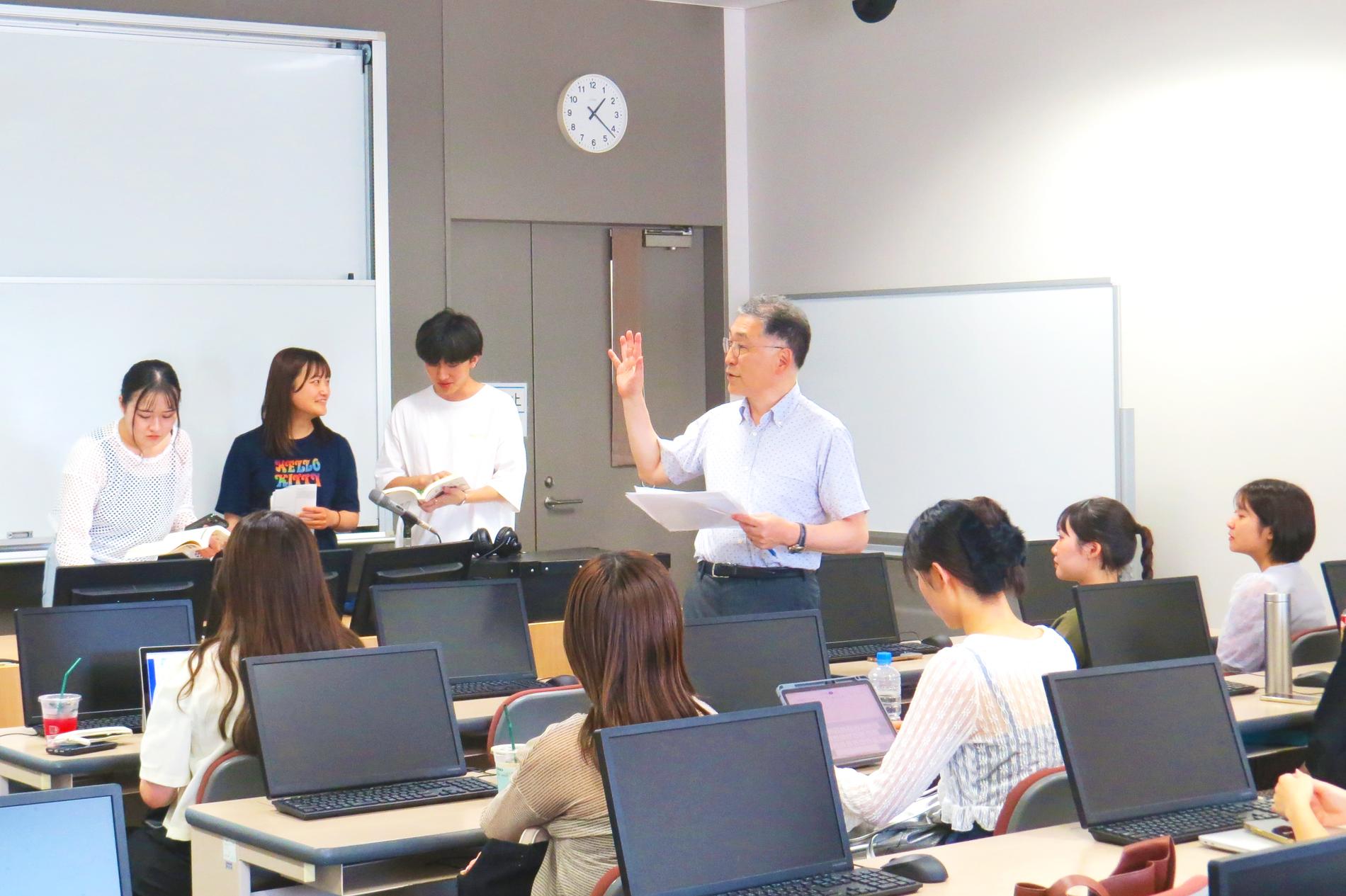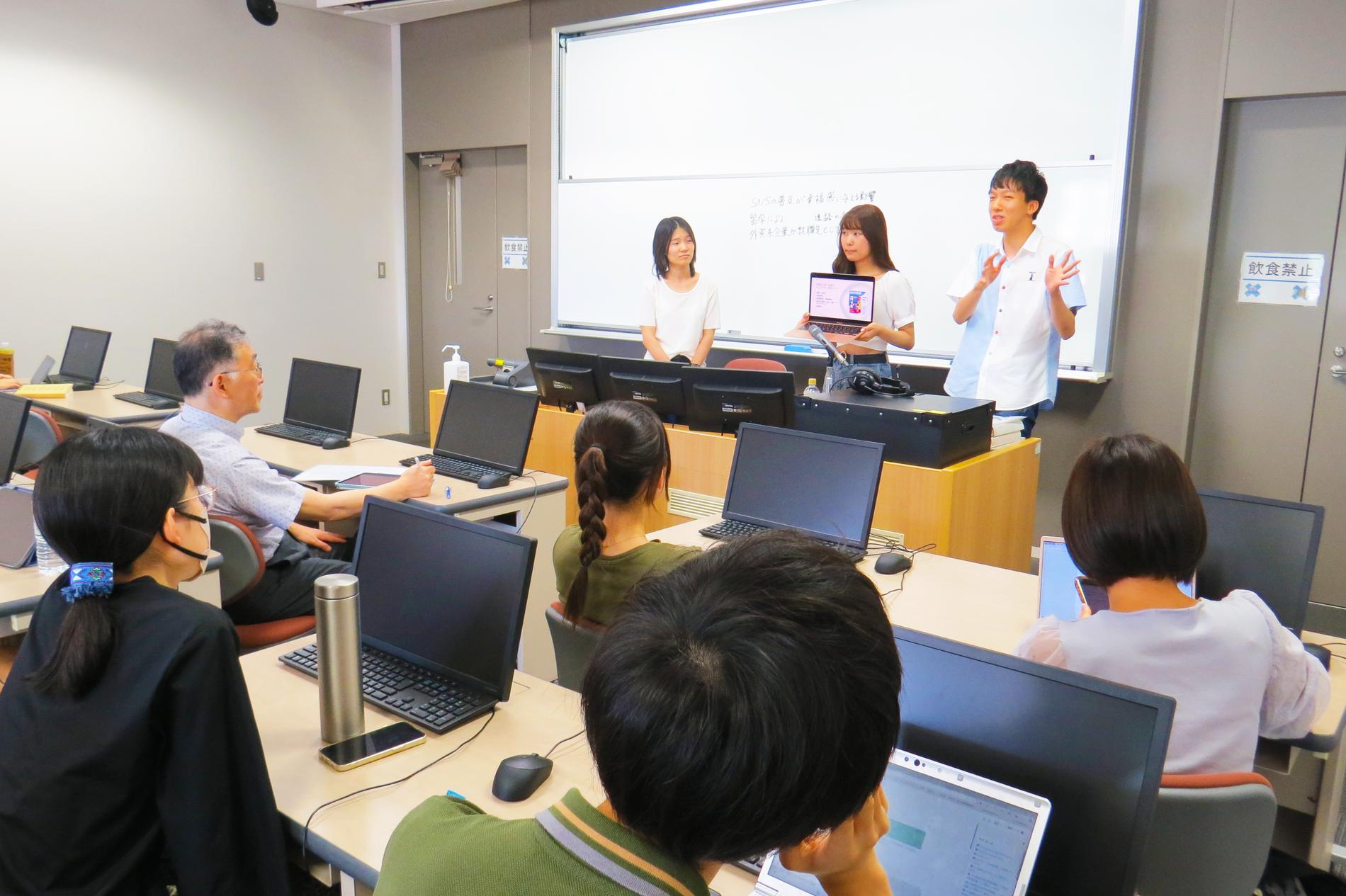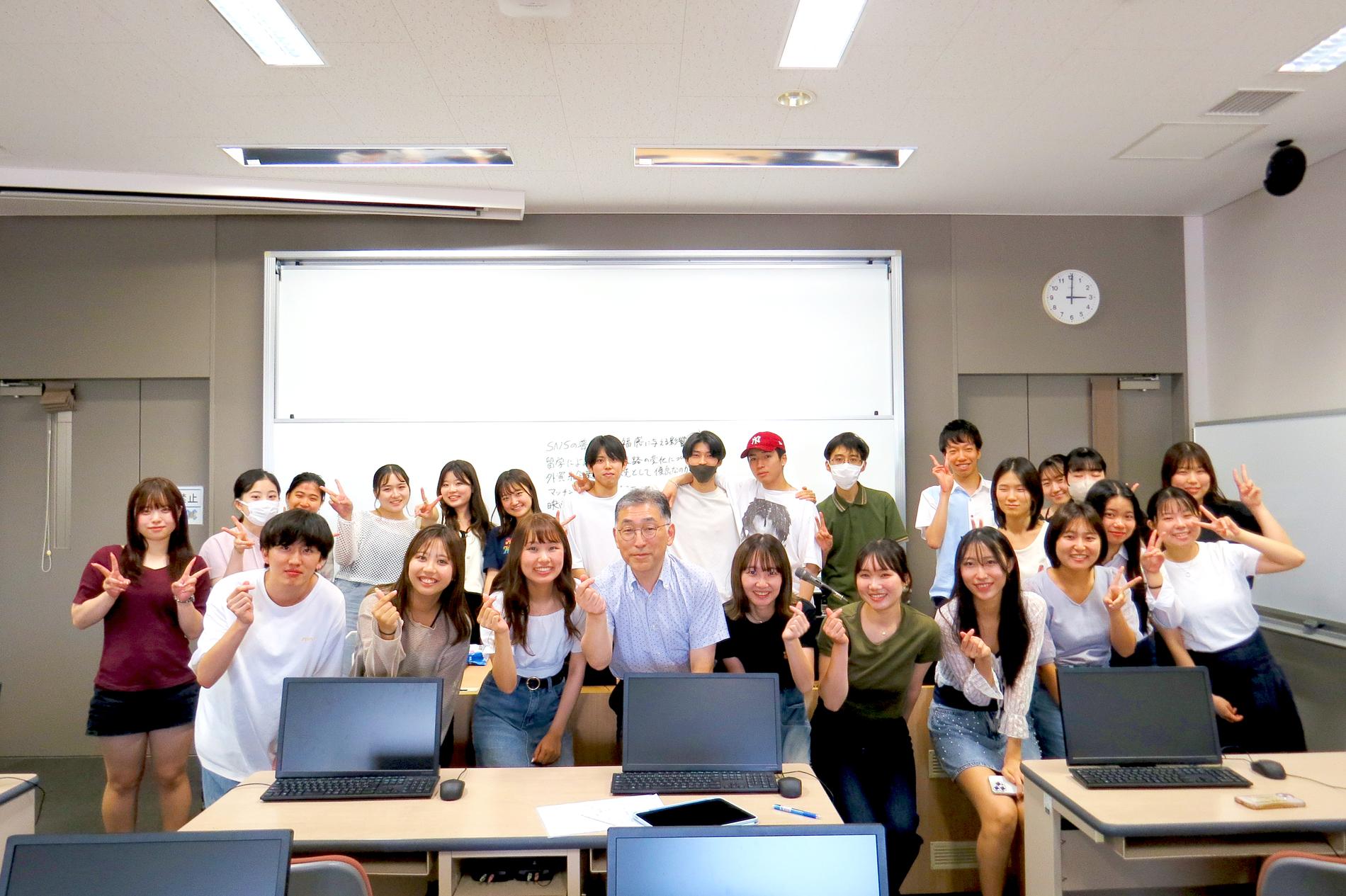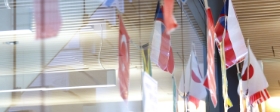Finding Meaning Where Everyday Life Meets Academic Analysis - Professor Inui's Advanced Seminar (Data Analysis)
Publication date:2024/06/28

One of the highlights of the Faculty of International Social Sciences (ISS) at Gakushuin University is its seminars, known within ISS as Advanced Seminars and Graduation Thesis Seminars. These seminars build on the foundational knowledge of that students acquire in their first and second years, allowing them to pursue research under the guidance of specialists in areas that interest them.
But what exactly happens in a seminar? And what makes each unique?
This time, we spoke with Professor Inui, who specializes in data analysis, along with one of the students from his seminar.
What topics are covered in Professor Inui's Advanced and Graduation Thesis Seminars?
Our seminar focuses on analyzing the economy from a quantitative perspective through data analysis. Students choose their own research topics based on their individual interests and engage deeply with them.
While the word "research" might sound intimidating or overly formal, the goal of this seminar is to help students realize how data analysis can be used to understand and solve real-world issues that arise in their daily lives. That's why we encourage students to begin their investigations from questions and curiosities they naturally hold.
Last year, for example, one group researched Changes in Cosmetic Sales During the COVID-19 Pandemic. The members of this group personally felt that makeup habits changed during the state of emergency when mask-wearing became widespread, and they hypothesized that this likely impacted cosmetic sales. Their project aimed to explore this relationship.
What kinds of activities take place in the seminar?
In the Advanced Seminar, students form groups of around four people and spend a year working together on a group research project. From the start, each group is free to choose its topic, methodology, and data sources, making the process highly autonomous.
Findings are presented at intercollegiate seminars held in collaboration with other universities.
One current group, for instance, is exploring the theme: The Spread of Social Media and Its Relationship to Happiness. They are analyzing whether social media enhances or diminishes well-being, and if it does reduce happiness, what potential countermeasures might be effective.
In the Graduation Thesis Seminar, students work alone or in pairs to complete their graduation thesis. Compared to the group-based Advanced Seminar, this stage involves more sophisticated research content and analytical techniques. Students draw on the knowledge and skills gained in the Advanced Seminar to complete their theses, often in a highly independent and rigorous environment.

What is the appeal of these seminars?
The greatest appeal lies in the freedom students have to choose their research themes. This allows their academic work to connect directly with their personal curiosity, enabling them to truly feel how academic tools can be used to analyze and understand everyday questions and challenges.
Another charm of this seminar is the close-knit, friendly atmosphere. Students don't just enjoy the intellectual satisfaction of research--they also experience the warmth of a supportive and lively community.
Finally, whether it's through group projects or individual theses, completing a comprehensive piece of research as the culmination of your university life is one of the most rewarding aspects of being a student.

Seminar Student Interview - Kano Sato (Class of 2021)
Professor Inui's seminar currently includes 25 students: 3 fourth-years (including support members) and 22 third-years, making it the largest seminar in the Faculty of International Social Sciences. The group is full of energetic, proactive students. One of the reasons I chose this seminar was because of its friendly and welcoming atmosphere. Professor Inui is always smiling and easy to talk to--almost like a father figure. He also provides generous support on topics beyond research, such as job hunting. At the same time, he maintains high academic standards, never compromising on the quality of our research, which creates a healthy sense of tension.
In the seminar, we study data analysis, applying mathematical and statistical techniques to economic data to uncover and explain economic and social phenomena. I've always enjoyed math, so I find this work fun and fulfilling. Right now, we're engaged in rindoku, or the reading and discussion of academic texts in rotation, which helps us build the skills to understand complex material and explain it clearly to others.
As seminar leader, I also handle organizational tasks beyond research--preparing slides to introduce the seminar, organizing retreats and social events, and more. For my graduation thesis, with Professor Inui's guidance, I plan to write about The Persistence of Discrimination Against Indigenous Peoples in Former British Colonies. I chose this topic after studying abroad at the University of South Australia in my second year and witnessing discrimination against Indigenous people firsthand. That experience made me want to explore how indigenous peoples are treated in other countries.
This year, I hope to further develop my ability to interpret data in the seminar. I believe the skill of identifying trends from data, as well as the leadership experience I'm gaining as seminar leader, will be incredibly valuable after I enter the workforce.
Note: Content reflects information available at the time of reporting.

 English
English

 Contact Us
Contact Us